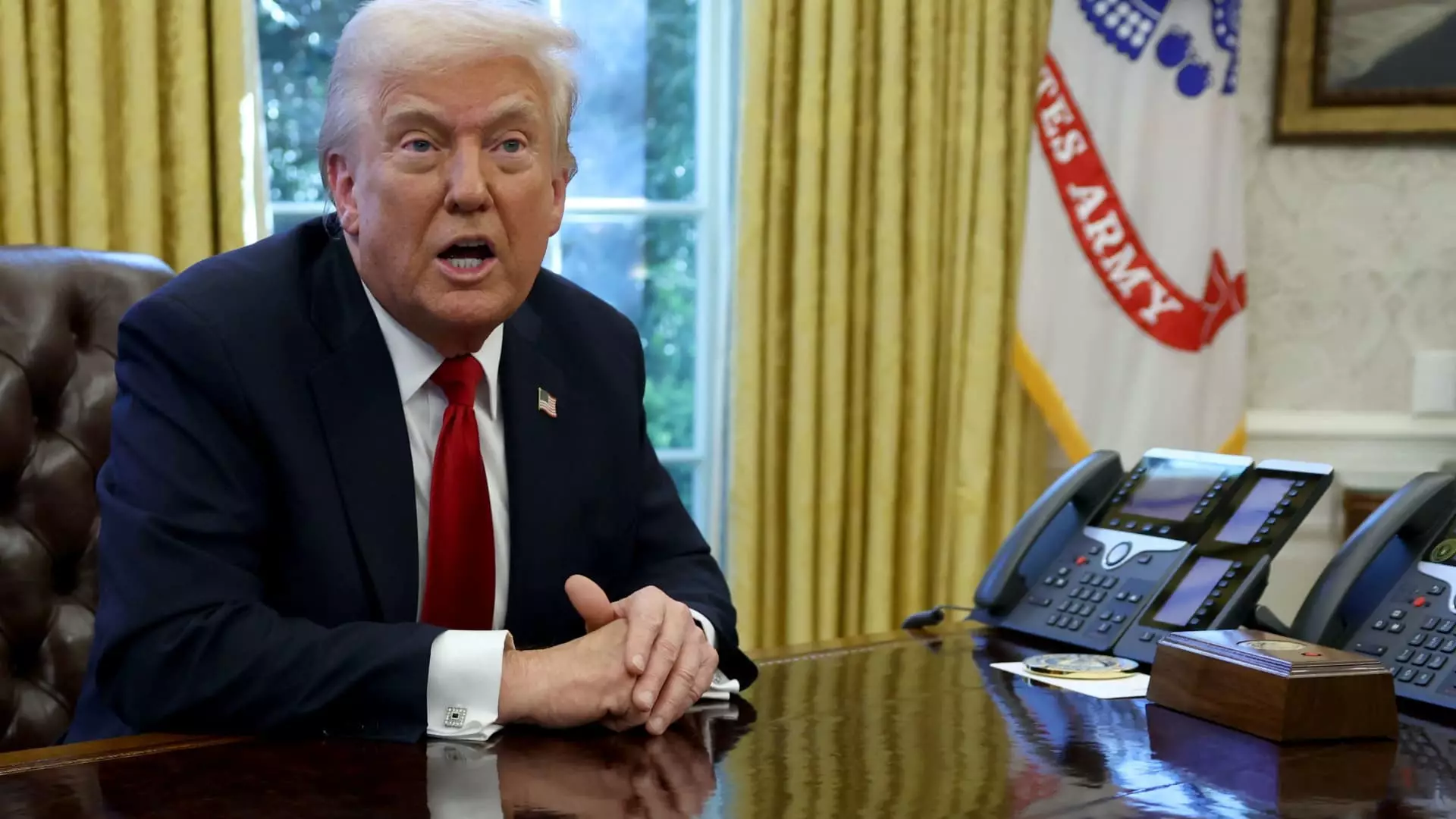On a noteworthy day, President Donald Trump made waves by declaring a sweeping 25% tariff on all vehicles not manufactured within the United States. This decision has implications that extend well beyond typical economic policy; it’s a diplomatic maneuver that intertwines the automotive industry’s future with American nationalism. The President’s remarks also highlighted the tangled web of relationships and influences playing out in the White House, notably his assertion that key advisor Elon Musk, CEO of Tesla, has abstained from commenting on the tariffs due to potential conflicts of interest.
While Trump’s tariffs are ultimately designed to bolster American manufacturing, they come at a complicated time for Tesla. The company has become synonymous with electric vehicles (EVs) in America. However, with substantial parts and components sourced from international markets such as Mexico, Canada, and China, the new tariffs pose a genuine threat to Tesla’s operational cost structure. Here lies the paradox: in attempting to protect American jobs, the tariffs could inadvertently burden companies like Tesla that rely on a global supply chain.
Elon Musk’s Dual Role: Advisor and CEO
Musk’s position is fascinating because he straddles the line between business titan and presidential advisor. Having previously contributed significantly to Trump’s campaign, Musk’s insights on economic policies seem to be precluded by self-interest and potential repercussions. When Trump notes that Musk hasn’t requested favors, he adds a layer of complexity to their relationship; is Musk’s silence a strategic move, or is it a calculation of potential harm versus benefit?
As the leader of the Department of Government Efficiency (DOGE), Musk’s mandate is to streamline government operations to reduce waste. This aligns with Trump’s broader narrative of slashing excess, but questions arise regarding how this efficiency doctrine will reconcile with the newly imposed tariffs that could strain Tesla’s ability to operate smoothly. Musk finds himself in a unique position where his business interests and governmental duties may not harmonize perfectly.
The Tariff Impact: Localizing Supply Chains
In a recent letter to the U.S. Trade Representative, Tesla articulated reservations about the possibility of sourcing all necessary parts domestically. They pointed out that even the most aggressive efforts toward localization present challenges when it comes to specific components that remain elusive in the U.S. market. This dilemma unveils another crucial reality: while tariffs are framed as a remedy for unfair trade practices, they may have unintended repercussions for innovative companies striving to lead in technology and sustainability.
The current landscape of electric vehicles sees increased competition from rivals like General Motors, Ford, Rivian, and the looming presence of BYD in China, which has yet to establish a foothold in the American market. While tariffs may protect domestic manufacturing in principle, they could also create friction that stifles innovation and competition. If Tesla and others are forced to absorb higher production costs due to tariffs, innovation may take a backseat, as companies will be compelled to focus on basic survival rather than expansion.
A Test of Market Response
The aftermath of Trump’s announcement has already been palpable, with shares of major automakers—including Tesla—taking a slight dip in after-hours trading. Such market reactions are not unprecedented; they underscore the fragile interconnectedness of the global auto industry. Many investors are wary of how these tariffs might affect both profitability and competitive positioning. As electric vehicles become not just a trend but an enduring preference for consumers, any missteps in policy could lead to dramatic shifts in market dynamics.
While Trump suggests the tariffs could be “net neutral or even beneficial” for companies with domestic plants, the reality remains that the pathway to American dominance in EV production is fraught with obstacles. Domestic infrastructure must expand, workforce training must advance, and supply chain logistics need to be refined—all while maintaining market competitiveness. If Tesla’s innovative prowess is stunted by these tariffs, the U.S. runs the risk of falling behind in the EV race.
Trump’s tariffs signal a seismic shift in how the automobile industry may evolve in the coming years. The balance between protectionism and global operational realities will be the cornerstone of success for American automakers.


Leave a Reply